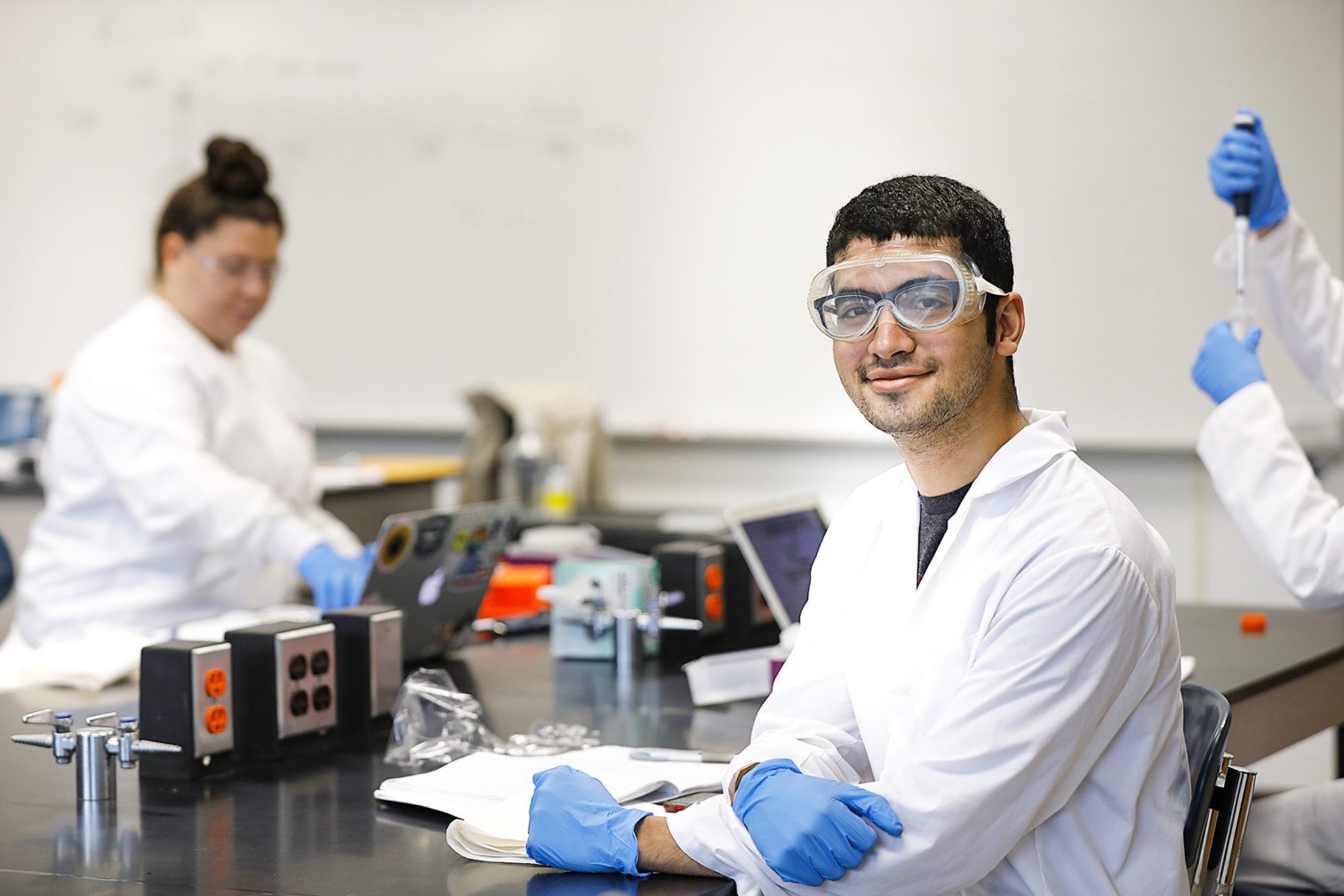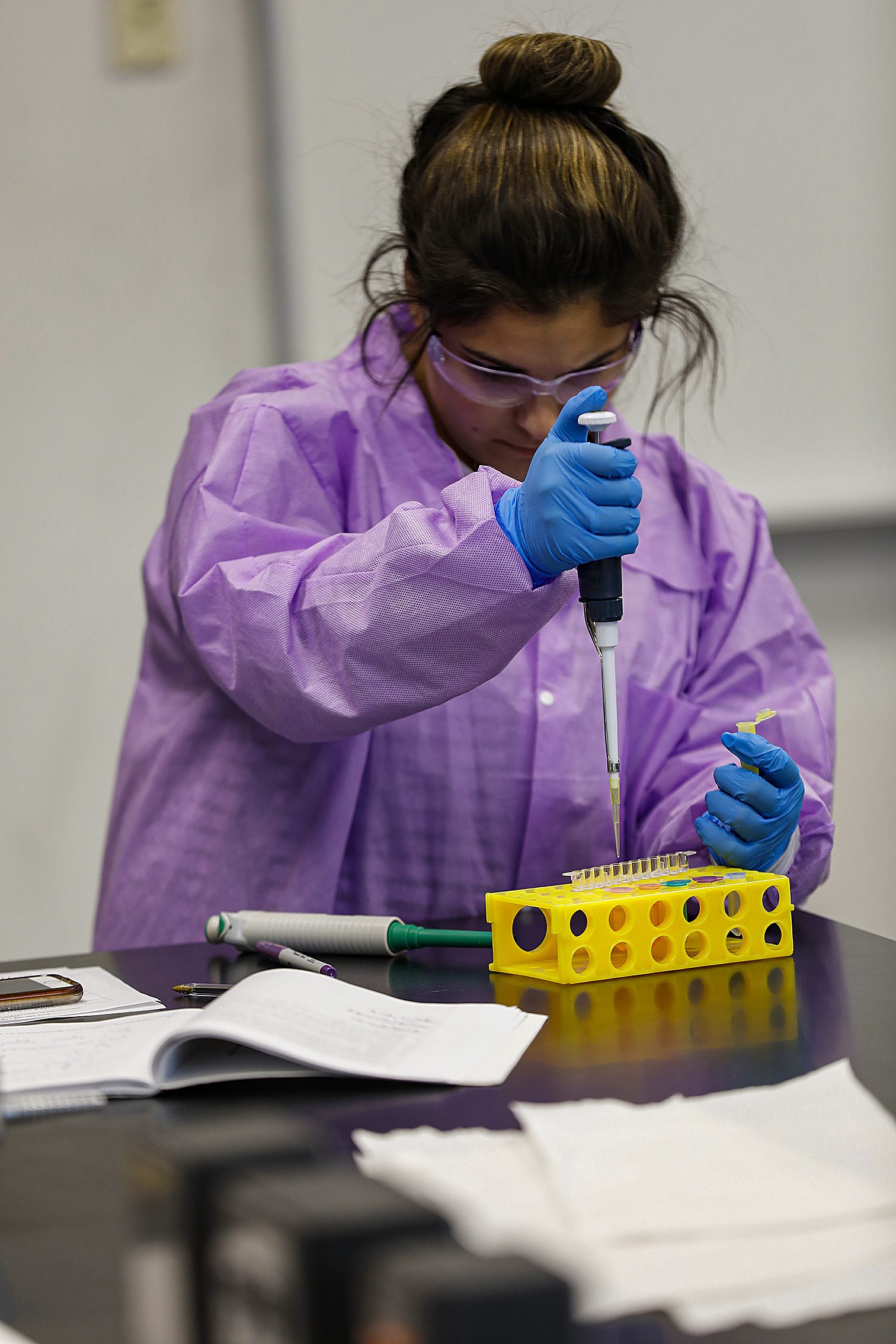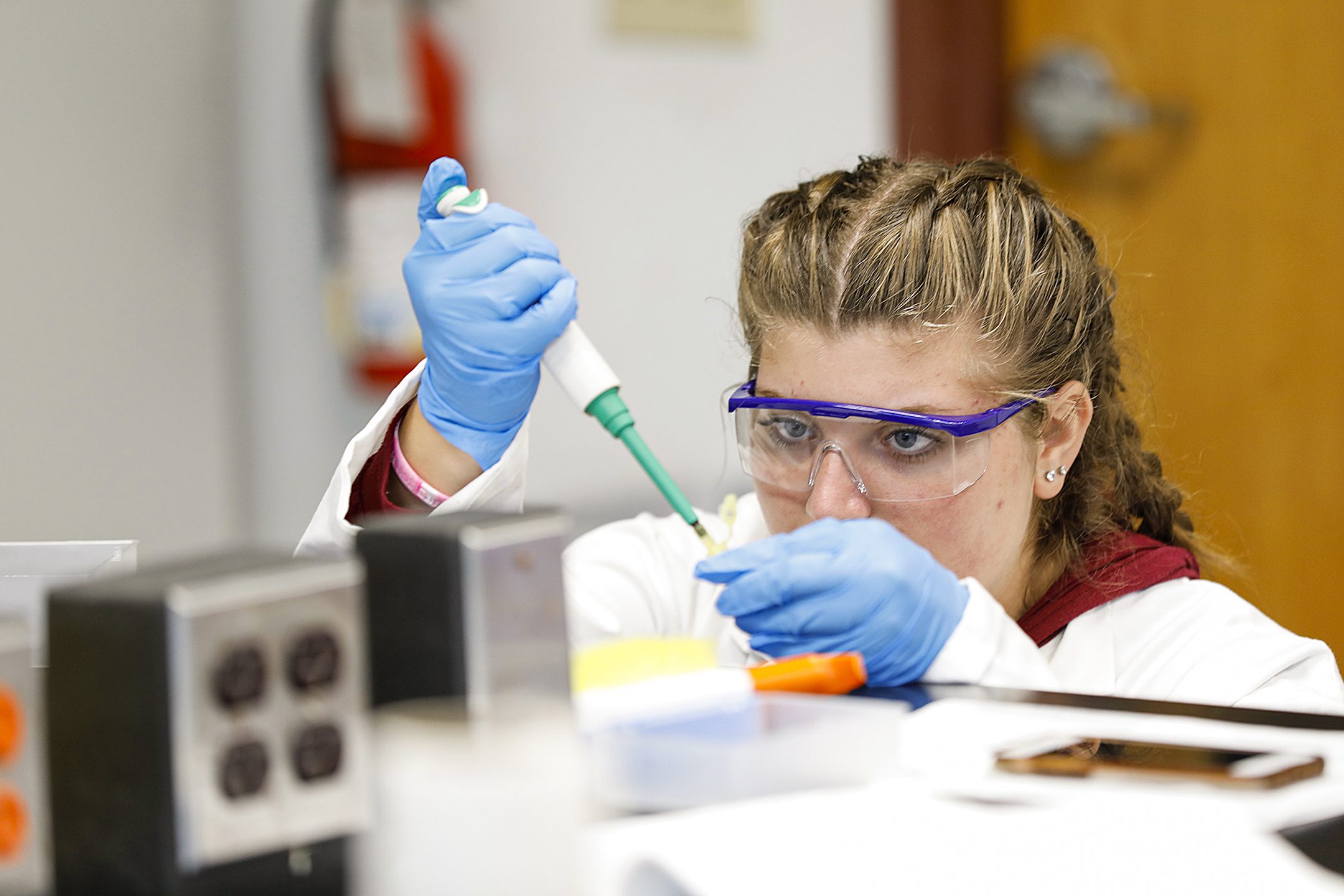Medical Technology
Medical technology is an exciting field in healthcare that involves using state-of-the-art technology to examine biological specimens and provide critical information to detect, diagnose, and treat diseases. In recent years, the medical technology industry has grown significantly and the U.S. Department of Labor reports that job opportunities for medical technologists are growing faster than the average for jobs in other fields.
Ignite your analytical skills in the medical technology program at St. Thomas Aquinas College and enjoy a rewarding career making a difference in others’ lives. The curriculum is rigorous, and includes courses in biology, anatomy and physiology, microbiology, chemistry, and physics. Learn in the field in a required one-year intensive clinical rotation at an AMA-approved medical technology school. Upon earning your degree, you will be eligible to take the ASPC Board Certification Exam for Medical Laboratory Sciences.
At a glance
- Undergraduate major
- BS
- 4 years
- Main campus
- Formally affiliated with the School of Medical Technology at Valley Hospital in Ridgewood, New Jersey
Only at St. Thomas Aquinas College

Ignite Your Career With Experiential Learning
Gain professional experience learning in the field in your senior year in a required one-year clinical rotation at an AMA-approved medical technology school. St. Thomas Aquinas College is formally affiliated with the School of Medical Technology at Valley Hospital in Ridgewood, New Jersey.

Career Preparation & Mentoring
Small classes make a big difference to students at St. Thomas Aquinas College. Develop strong relationships with our faculty of world-class scientists who will mentor you throughout your college years and beyond. As experienced practitioners, we will guide you in achieving your full potential.
Keep Exploring
Featured Courses
The basic principles of chemistry: the theory of atomic and molecular structure and the nature of the chemical bond, periodicity of the elements, energy-mass relationships, states of matter and the chemistry of solutions. Three lecture hours and one recitation hour per week.
Systems of defense against disease including antigen structure and presentation, antibody synthesis and function, innate and cellular immunity, and how body defenses are coordinated.
The classification, morphology, physiology, identification, and control of microorganisms with emphasis on those of medical importance to humans.

Career Options
A degree in medical technology will prepare you to work in diagnostic laboratories in a variety of healthcare settings, including:
- Hospitals & Medical Centers
- Pharmaceutical Companies
- Government Agencies
- Crime Labs
- Biological Research Facilities
- Veterinary Labs
- Accreditation Offices
- Environmental Labs

Program options
The BS in Medical Technology provides the essential foundations and technical skills to succeed in a rewarding career in the healthcare industry. Upon completing the program, you will be eligible to sit for the ASPC Board Certification Exam for Medical Laboratory Sciences.
